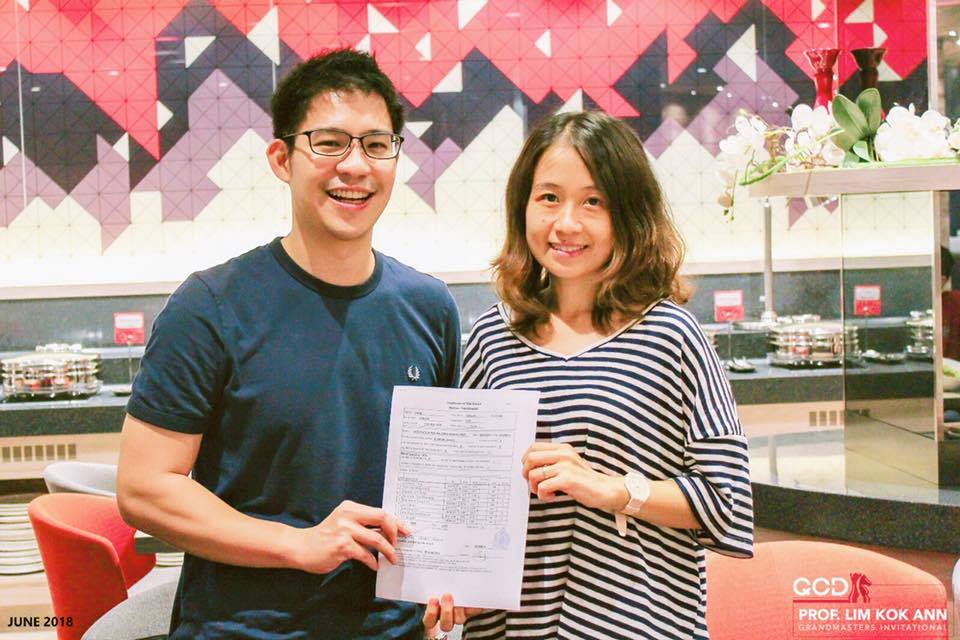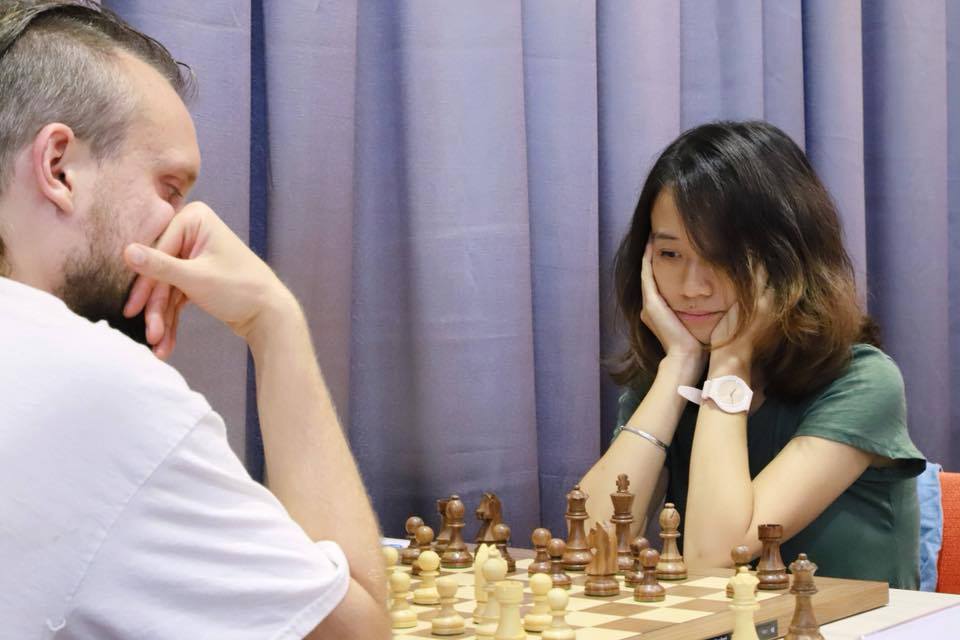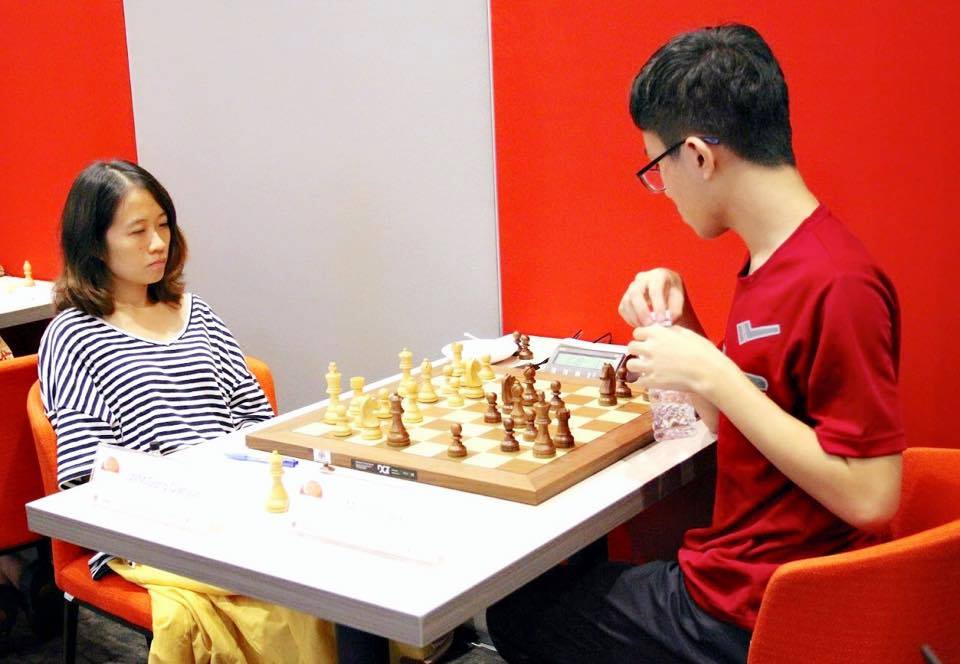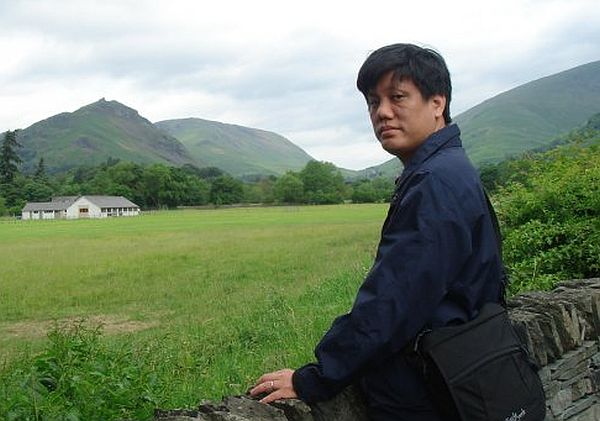Gong Qianyun: "I had to clean toilets if I failed to memorize the classics correctly!"
At the conclusion of the QCD-Prof Lim Kok Ann Grandmasters Invitational 2018, Singapore got its latest Woman Grandmaster in Gong Qianyun. Despite being the lowest rated player in the field, Gong was able to hold ground against Grandmasters rated as much as 300 points above her! In this interview with Junior Tay, she talks about her performance in the invitational, her personal life and her early days of learning chess when she had to clean toilets if she wasn't able to memorise the classics correctly!
Gong Qianyun - Tahan Queen!
*Note - 'Tahan' in Singaporean colloquial English means 'to put up strong resistance' or 'to endure'.
It was a successful event at the QCD-Prof Lim Kok Ann Grandmasters Invitational 2018 (7-12 June, 2018) for Singapore. After two whole decades, the country successfully conducted a GM norm event. Singapore also has a new WGM in Gong Qianyun. Besides, IM Kevin Goh Wei Ming clinched his 3rd and final GM norm by finishing with 6.5/9, half point behind the eventual winner Mongolian GM Tsegmed Batchuluun.
We managed to rustle up personal interviews with both players who are, incidentally, the National champions of Singapore. Firstly, the Singapore women champion WIM Gong relates about her tourney experience and a bit about her personal life.

JT: You took a long time before deciding to accept the invitation to take part in the event. Why was that?
JT: How did you feel about competing in a GM norm event where you were out-rated by everyone and likely to be the player everyone would want to score against?
JT: Your first round was against the top seed GM Timur Gareyev, who, at 2611, outrated you by 300+ points. And he was just throttling you and forced you to give up material. What were your thoughts then? What changed things for you?

JT: Were you confident of making the WGM norm then?
GQ: I did not ponder too much over it. I was more focused on playing each game well.
JT: It was almost 4 years since your WGM norm from the Tromso Olympiad. What changed things in this event to make this norm happen?
GQ: Nothing much has changed. I guess it is about not having much opportunity to take part in a strong tournament like this since the Tromso Olympiad. I am really grateful to the organizers for holding such a great event.
JT: After holding 3 of the top 4 seeds in the first 3 rounds, you subsequently lost to IM Irene Sukandar and GM Batchuluun. It must have been quite depressing for you then. How did you cope with it?
GQ: I try not to think too much about the losses and instead focus on the upcoming games.
JT: You won the TAHAN (best resistance) award for saving the game against Timur and for that amazing turnaround against IM Liu Xiangyi (on move 56, the computer says you were -54.48 down). How did you build up this ability to resist? I don’t think we saw that aspect of your game in previous events before.
GQ: I think I was just lucky here. I tried to find the best continuations and was lucky that my opponents allowed me a chance to get back into the game, unlike previous events.
JT: In the crucial final round, you needed to beat IM Tin Jingyao, who is surely a very tough opponent to overcome. You didn’t look too self-assured at all then. However, when the game began, you just played without fear and when he attacked you in the middlegame, you confidently pushed him back and hardly gave him a chance to recover. How did that happen?
GQ: From the opening, I managed to get the upper hand. I had an extra pawn and my opponent did not have compensation for it. After that, I constantly reminded myself to be more careful in this crucial round as I've had a long history of losing games when I have the advantage. [Ed: Find the annotated game below]

JT: Who do you wish to thank for making the WGM title and why?
GQ: I would like to thank my family. They had to spend more time with the kids at my place to allow me to focus on the tournament. I also like to thank Kevin for encouraging me to not give up and for helping me prepare me for the crucial final round game.
JT: How do you intend to celebrate the long cherished WGM title?
GQ: I think I shall wait for the title confirmation before celebrating. Perhaps by having a sumptuous meal with my family. [Ed: The norm was confirmed at the FIDE Presidential Meeting in Bucharest, Romania, earlier this month]
JT: Would you like to show us any games from the event?
GQ: I think my game against Jinyao was my best in the tournament. The rest I’m just tahan-ing…
JT: How did you pick up chess? Who trained you in your early years of chess?
JT: When did you get good at chess?
JT: Why did you choose to be a chess trainer / National player in Singapore?
JT: Can you tell us a bit about your family? Does your husband play chess – does he stand a chance against you?
GQ: I have a husband and 2 kids, and they have been supportive of my chess career. My husband played competitive chess when he was younger but is rather inactive these days. He stands a chance when I’m not paying attention!
JT: Are you going to train your kids to become chess masters?
JT: How do you train now?
JT: Does being a chess trainer make your ability to improve at chess more difficult?
JT: Do you ever regret choosing life as a chess professional as a career? Would you have done things differently if you could restart again?
JT: Why do you always say “women’s endgame” when you get outplayed in the endgame against strong opponents?
JT: One last question: what advice would you give to girls who aspire to be strong at chess since there are so many more boys in it?
JT: It was a pleasure talking to you, Gong. Thanks for your time.
About the Author

A chess author, editor and coach for the past three years after being a school teacher for 17 years, Tay is a former National Rapid and Cairnhill Open Champion and represented Singapore in international events including the Asian Team Championships.

